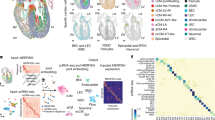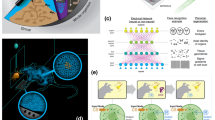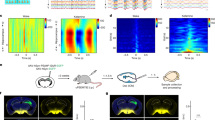Abstract
The qO2 or oxygen uptake of a tissue is considered to be a reflexion of the metabolic energy produced through substrate catabolism to support its functional activities. It is usually accepted that the total in vivo oxygen consumption is directly related to ATP production as the sole energy transfer and storage mechanism for endergonic processes1. Energy balance calculations in biology make use of this assumption, which is based on the known in vitro efficiencies of these processes. Recently biochemists have shown that certain non-mitochondrial enzyme systems assimilate or “take up” oxygen2 and that respiration without phosphorylation is probably essential to many of the biological functions of mitochondria3. The relative contribution of non-phosphorylating and non-mitochondrial oxygen uptake to total respiration in vivo has been studied in the isolated perfused rat heart. Oligomycin and cyanide were used as inhibitors to distinguish mitochondrial but non-phosphorylating respiration from non-mitochondrial respiration.
This is a preview of subscription content, access via your institution
Access options
Subscribe to this journal
Receive 51 print issues and online access
$199.00 per year
only $3.90 per issue
Buy this article
- Purchase on Springer Link
- Instant access to full article PDF
Prices may be subject to local taxes which are calculated during checkout
Similar content being viewed by others
References
White, A., Handler, P., and Smith, E., Principles of Biochemistry, chap. 16, 17 (McGraw Hill, New York, 1964).
Siekvitz, P., Fed. Proc., 24, 1153 (1965).
Control of Energy Metabolism (edit. by Chance, B.) (Academic Press, New York, 1965).
Morgan, H. E., Henderson, M. J., Regen, D. M., and Park, C. P., J. Biol. Chem., 236, 253 (1961).
Challoner, D. R., and Steinberg, D., Amer. J. Physiol., 210, 280 (1966).
Challoner, D. R., and Steinberg, D., Amer. J. Physiol., 211, 897 (1966).
Opie, L. H., J. Physiol., 180, 529 (1965).
Huijing, F., and Slater, E. C., J. Biochem. Tokyo, 49, 493 (1961).
Lardy, H. A., Johnson, D., and McMurry, W. C., Biochemistry, 3, 1961 (1964).
Challoner, D. R., Amer. J. Physiol. (in the press).
Van Rossum, G. D., Biochim. Biophys. Acta, 82, 556 (1964).
Wojtczak, L. H., Zaluska, L. H., and Drahota, Z., Biochim. Biophys. Acta, 98, 8 (1965).
Beattie, D. S., and Basford, R. E., J. Biol. Chem., 241, 1412 (1966).
Kroon, A. M., Biochim. Biophys. Acta, 72, 391 (1963).
Etnster, L., and Lee, C. P., Ann. Rev. Biochem., 33, 779 (1964).
Azzone, G. F., and Azzi, A., Proc. US Nat. Acad. Sci., 53, 1984 (1965).
Challoner, D. R., Lancet, ii, 681 (1966).
Scholz, R., and Bucher, T., in Control of Energy Metabolism (edit. by Chance, B.), 393 (Academic Press, New York, 1965).
Author information
Authors and Affiliations
Rights and permissions
About this article
Cite this article
CHALLONER, D. Respiration in Myocardium. Nature 217, 78–79 (1968). https://doi.org/10.1038/217078a0
Received:
Revised:
Issue Date:
DOI: https://doi.org/10.1038/217078a0
This article is cited by
-
Snf1-related kinase improves cardiac mitochondrial efficiency and decreases mitochondrial uncoupling
Nature Communications (2017)
-
The muscle fiber type–fiber size paradox: hypertrophy or oxidative metabolism?
European Journal of Applied Physiology (2010)
-
Metabolism and structure of the magnesium aspartateprocaine-arrested ischaemic heart of rabbit and man
Basic Research in Cardiology (1976)
-
Metabolism and fine structure of the Mg++-procainearrested perfused heart
Basic Research in Cardiology (1975)
Comments
By submitting a comment you agree to abide by our Terms and Community Guidelines. If you find something abusive or that does not comply with our terms or guidelines please flag it as inappropriate.



